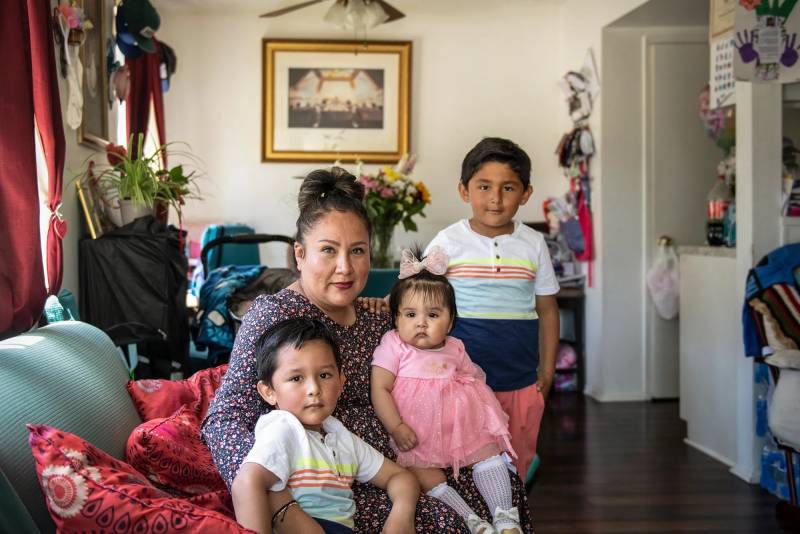Assemblymember Miguel Santiago, a Los Angeles Democrat, plans to promote a bill he authored that would enable the state to extend the expired federal child tax credit. Santiago’s bill, backed by United Ways of California, would provide a $2,000 payment per child to families that earn $30,000 a year or less.
“It is a chance for the Legislature to send a clear message of prioritization,” said Anna Hasselblad, director of public policy for United Ways of California.
Any form of relief would be welcome to Paniagua, a 38-year-old mother of three living with her husband in a two-bedroom apartment in the coastal Ventura County city of Port Hueneme.
In a phone interview, Paniagua said her family survived the pandemic only because her husband kept his job at a local nursery. He is undocumented, she said, and so would not have qualified for 2020 federal relief.
In 2021, her family benefited from state stimulus checks for the undocumented, she said, and from goods from a local food pantry and some CalFresh benefits available to her because her son was enrolled in school.
This year, she said, the high cost of living has stretched her family thin. With her rent increasing $200 in July to $2,100 a month, she has taken to using the Flipp phone app to search for deals on necessities such as milk, yogurt and baby formula for her 7-month-old girl.
Gone are any trips to the movies, or the occasional splurge on In-N-Out burgers, a favorite of her children, she said.
This article is part of the California Divide project, a collaboration among newsrooms examining income inequality and economic survival in California.


